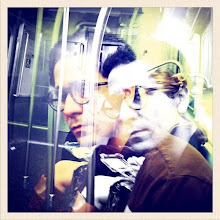Compulsions within a social order that creates the circumstance for mistake renders an otherwise heroic persona a defeated hero. Aristotle's strictures on tragedy seem to me to be an account of the most expedient way to accomplish the whole order necessary for some character to be destroyed within and by.
In addition to creating small worlds, tragedy seems to create a global timescale by holding at a distance an inevitable end that everyone senses and which over and over almost occurs, thus keeping its probability perpetually on the horizon, until finally the catastrophe happens, as everyone knew it must.
These little near-terrors are brushed away so lightly that their avoidance gladdens the heart. The heart is lifted to be taken half-down, to be lifted to be taken half-down, to be lifted to be taken half-down, so that the finale releases not only the large orgasmic climax, but releases all the subdued orgasms collected on the way up.
There are many moments in Cooley High when it seems that catastrophe is about to catch Preach and Cochise, but that element is then wrapped into Motown tune or a comical escape. And Preach and Cochise continue in the element which nobody can see but the audience continues to sense.
Somewhere beneath the elevated train tracks, and the entire movie occurs under those tracks, the element is enlarging. When Cochise is killed because of a mistake in communication, the train's deafening grinding drowns out Preach's cry for help. The horizon of silence and completion has been reached where it was all along, under the tracks. This is the whole world.
And this, this dysfunctional whole, the deaf end of the whole world, has always frightened me because you do not realize the lion until you are already in the maw. The deadly pressure is felt on a stage built for our fiction but the performance can not yet be completed.
Tuesday, June 2, 2009
Subscribe to:
Comments (Atom)



